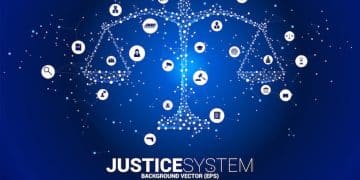Supreme Court blocks gender‑neutral passport ban

The Supreme Court’s ruling blocks the gender-neutral passport ban, ensuring all citizens can choose identification that accurately reflects their gender identity, promoting equality and inclusivity.
The Supreme Court blocks gender‑neutral passport ban, marking a significant shift towards inclusivity. But what does this decision really mean for citizens navigating identity options? Let’s dive deeper.
Understanding the passport ban and its implications
The passport ban has significant effects on many individuals. It relates directly to how identity is recognized within official documents. However, this issue is not just about passports; it touches on personal identity and rights too.
What the Ban Entails
The passport ban prohibited individuals from obtaining gender-neutral options. This situation created challenges for people whose gender identity doesn’t conform to binary norms. The regulation forced many into uncomfortable positions, requiring them to select a gender that may not align with their identity.
Implications for Citizens
This ban had important implications for citizenship and personal freedom.
- Identity Accuracy: Individuals could not accurately express their identity.
- Social Stigma: The ban contributed to stigma surrounding non-binary and transgender identities.
- Legal Challenges: Many sought to challenge the ban legally, bringing attention to the need for gender-neutral options.
As societal views shift towards inclusivity, the recognition of gender-neutral identities has gained traction. Many countries have started to adopt more inclusive practices that recognize a variety of gender identities. This change is essential for ensuring that all citizens can confidently express their identities without fear of judgment or discrimination.
The ongoing discussion surrounding the passport ban also raises awareness about broader issues of equality and human rights. As various stakeholders engaged in conversations, it became evident that personal identification matters to everyone, not just marginalized groups. Every citizen wants to feel validated and recognized.
Understanding these implications undoubtedly affects how people view legal recognition and personal rights.
The fight for gender equality in identification

The fight for gender equality in identification has become a crucial issue in today’s society. Many individuals face barriers when trying to obtain identification that reflects their true identity. This struggle highlights the importance of recognizing all gender identities fairly.
Barriers to Equality
People often encounter legal and social hurdles that prevent them from having their gender represented correctly. Many countries still require identification forms that do not allow for non-binary or gender-neutral options. This absence can lead to personal frustration and marginalization.
Activism and Awareness
Over the years, activists have worked tirelessly to promote rights regarding gender identification. Advocacy groups are raising awareness and pushing for policy changes. By engaging in demonstrations and lobbying efforts, they bring attention to the challenges that many face.
- Legal Reform: Advocates are calling for changes in legislation to allow gender-neutral options.
- Public Education: Increasing awareness about gender diversity is vital for acceptance.
- Support Networks: Community support plays a crucial role in helping individuals navigate these challenges.
The dialogue surrounding gender equality in identification is expanding. Society is slowly moving toward acceptance, but much work remains. Organizations and individuals are committed to this cause, ensuring every person’s identity is validated and respected.
As we continue to address these issues, it’s essential to recognize the impact identification has on a person’s life. The ability to identify oneself accurately promotes confidence and acceptance, radically changing how individuals navigate the world. This fight for recognition and equality is far from over, and the voices of those affected are vital to driving change.
What the Supreme Court ruling entails for citizens
The recent Supreme Court ruling regarding the gender-neutral passport ban has significant implications for citizens. With this decision, individuals can now identify themselves in a way that accurately reflects their gender. This ruling promotes inclusivity and acceptance in official identification.
Legal Changes
The ruling establishes a legal framework that permits gender-neutral options on passports. This change means that citizens no longer have to conform to binary gender categories. Instead, they can choose a designation that matches their identity.
Impact on Civil Rights
By affirming the rights of individuals to choose their gender expression on official documents, the Supreme Court is supporting broader civil rights. This decision empowers many people to live authentically without fear of discrimination.
- Increased Acceptance: Society will likely become more accepting of varying gender identities.
- Legal Protections: This ruling can inspire further legal protections for gender diversity.
- Affecting Travel and Documentation: Easier access to accurate identification can lead to smoother travel experiences for many.
Furthermore, the ruling fosters an important dialogue about identity and recognition. It encourages people to explore the implications of gender identity beyond traditional norms. As awareness grows, more individuals may feel a sense of belonging in society.
Overall, the ruling signals a progressive step towards embracing diversity in personal identification. Citizens can now navigate their lives with identification that aligns with their true selves, paving the way for increased visibility and acknowledgment of all identities.
Future protections for gender diversity and identity

The future of protections for gender diversity and identity looks promising as discussions around inclusive policies continue to evolve. Many are advocating for stronger legal frameworks that support individuals in expressing their true identities without fear or discrimination.
Legislative Trends
There is a growing trend towards implementing laws that explicitly protect the rights of non-binary and transgender individuals. This shift aims to create safe spaces where everyone can feel accepted and validated.
Community Advocacy
Advocacy groups are vital in pushing for changes that recognize and celebrate gender diversity. These organizations work relentlessly to raise awareness and push legislation forward. A significant focus is placed on educating the public about identity and its importance.
- Policy Changes: Including gender-neutral options in legal documents is essential.
- Support Services: Enhancing services that cater specifically to diverse gender identities is crucial.
- Awareness Campaigns: Initiating campaigns to promote understanding and acceptance at all levels of society.
As societies increasingly recognize the value of diversity, there is hope for more inclusive environments. Changes in the workplace, healthcare, and educational systems are needed to ensure everyone has the support they deserve. By establishing comprehensive protections, we can create a world where each individual feels empowered to express their true self.
Looking ahead, it’s important to continue the conversation about gender diversity and identity. Ensuring that these topics remain at the forefront of policy discussions will help solidify the rights of all individuals. With sustained momentum and support, the future holds the potential for a more inclusive society.
FAQ – Frequently Asked Questions about Gender Equality and Identification
What is the significance of the Supreme Court’s ruling on gender-neutral passports?
The ruling allows individuals to obtain passports that accurately reflect their gender identity, promoting inclusivity and equality.
How does this ruling benefit non-binary individuals?
Non-binary individuals can now choose gender-neutral options on their identification, which validates their identity and reduces discrimination.
What actions can communities take to support gender diversity?
Communities can promote awareness, advocate for policies that protect gender diversity, and create safe spaces for individuals to express their identities.
What role does education play in promoting understanding of gender diversity?
Education fosters awareness and acceptance, helping society understand the importance of respecting all gender identities.





